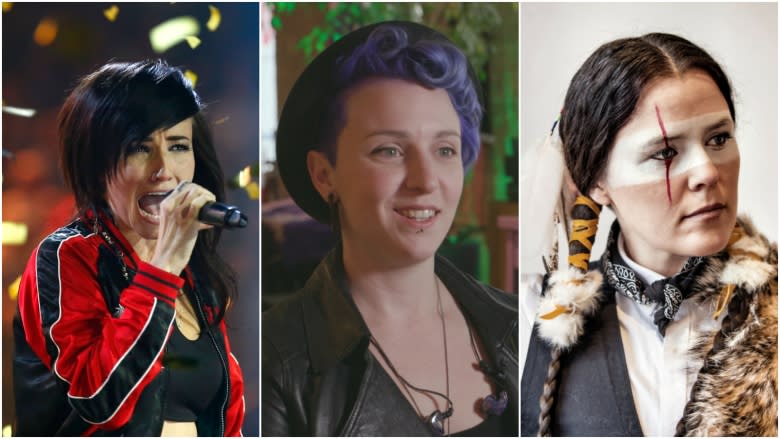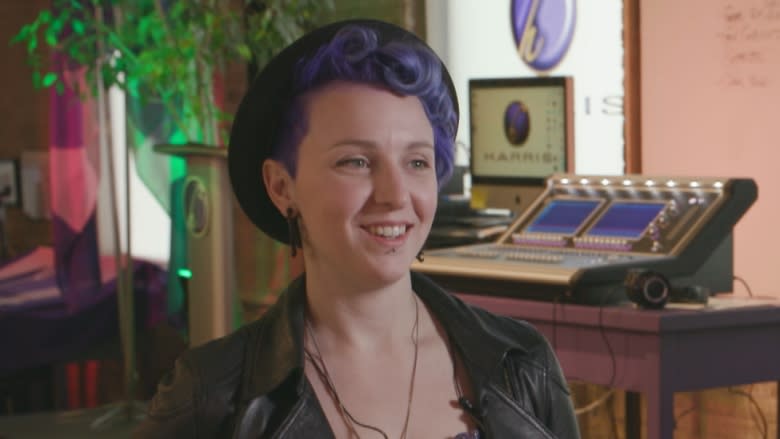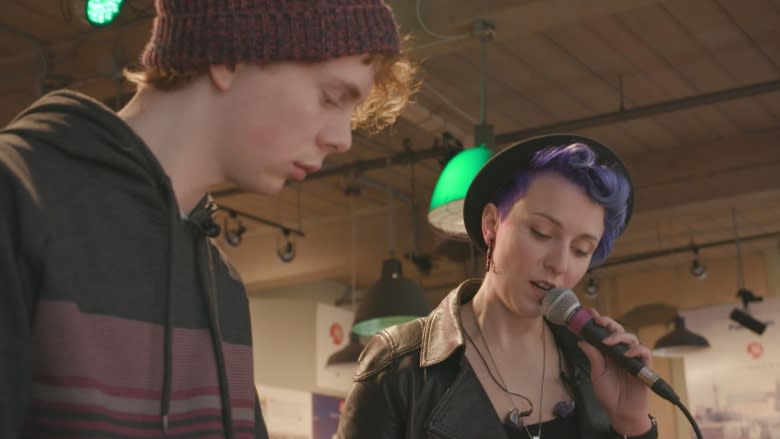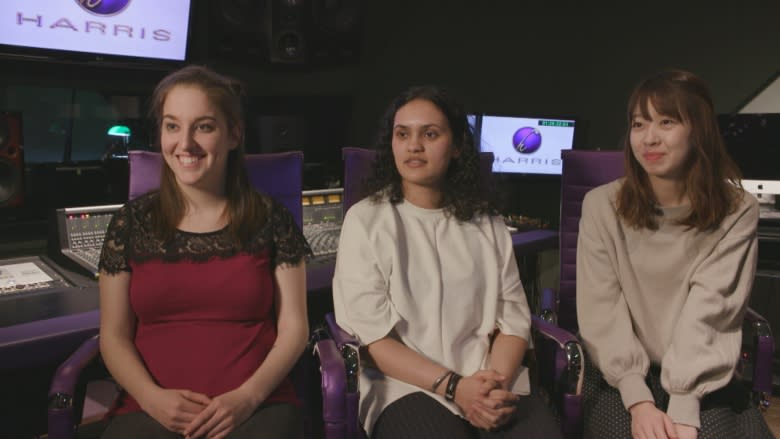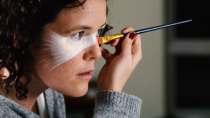How Lights, IsKwé and other women are making change in the Canadian music industry
As the Canadian music industry gathers in Vancouver to celebrate the Juno Awards this weekend, inclusion, gender parity and the #MeToo movement will undoubtedly be topics of conversation.
In the wake of sexual misconduct allegations against EDM DJ Datsik and Jacob Hoggard, the frontman of pop rock group Hedley, as well as lingering concerns over the #JunosSoMale debate of recent years, Canada's music industry is — like many other industries — grappling with how to create a balanced, safe and representative workplace.
Amid the crescendo of voices demanding change, some say it will only happen when more women are involved across all aspects of the industry.
A singer calls out
One of Canada's brightest young stars, Lights has two Juno Awards under her belt, including a 2009 win for best new artist. After releasing her fourth studio album, Skin & Earth, she's nominated for two Junos this year and will perform at Sunday's broadcast gala.
Despite her success and music industry connections, she recently realized something was missing and took to Twitter to find it.
"In my entire career, I've only ever worked with one female producer and I think that's a shame," Lights, born Valerie Anne Poxleitner, told CBC News before a recent sold-out Toronto concert.
Decrying the industry's lack of women behind the scenes, she said she hopes her next project can be "driven by women," a desire that's been fuelled, in part, by her family life.
"Now that I have a daughter, I notice what's marketed to young women," she said.
"We need to re-evaluate what we market to our kids. [We need to] create interest, and create an understanding of music and of music creation and the tech side of music and a passion for it and make them realize that that is a career path.
"If they don't see it, they don't know that they can be it."
The role model inspires
After graduating with honours in audio production from Toronto's Harris Institute in 2009, Allyssa Rawes quickly discovered the music industry was "very much a boy's club."
The message she heard loud and clear was that the career she loved was a "bro zone" behind the boards.
"I had long blond hair and I was 18 — very eager and naive. I found out real quick that it wasn't inviting for women," Rawes said.
There's sexual misconduct, "harassment and ... just the general assumption that women don't know what we're doing," she said. "I almost quit."
Rawes stuck with it and is now sought after as a monitor technician for tours — by groups like the Arkells and Alvvays — and serves as technical director and senior audio technician at the Mod Club in Toronto.
She has also returned to her alma mater to teach digital live sound, setting an example for a new generation of young women seeking to follow in her footsteps in audio production.
"When I started, there weren't a lot of women in the industry, so as one of the first women in the industry, I wanted to kind of lay that groundwork for the rest of the women to come in."
Next generation forging ahead
Women learning audio production — a field traditionally dominated by men — represent a growing demographic. At the Harris Institute in Toronto, female enrolment has increased from less than five per cent in the 1990s to between 15 and 20 per cent today.
Students are inspired by instructors like Rawes.
"[Allyssa's] a very straightforward type of person and she taught me that it's OK to be that way. It's OK to just go after what you want and pursue that," said student Hannah Wordekemper.
"You have to be in control of yourself. You have to stand up for yourself," said classmate Jasleen Kaur.
"That's the only way to work through it. If you give up, then the stigma's going to last forever."
An advocate raises her voice
Onstage, her voice is powerful, emotional. Offstage, Juno-nominated musician IsKwé is equally vocal as an advocate for gender parity in music.
The Cree and Dene pop singer is a board member of Women in Music Canada, the non-profit group working to establish greater gender equality in the Canadian industry.
IsKwé is also an ambassador for Keychange, the international campaign working toward 50/50 gender balance at music festivals and conferences by 2022. Four Canadian events are among the 45 worldwide that have signed on.
Recent studies have underlined the ongoing disparity in music festival and conference lineups, for instance revealing that women made up just 26 per cent of the lineups at U.K. events or that an analysis of major 2017 North American festivals found nearly three-quarters of the featured artists were male, with just 14 per cent female (the remainder were mixed-gender acts).
"Gender parity does not mean that we are replacing the bands that we want to see. It just means that we're giving the opportunity to the voices and the bands that we might not have had access to in the past," IsKwé said.
And if female artists aren't on equal footing from the ground up, how can they reach top billing at mainstream festivals?
"It's a very long road to headline a festival. It doesn't happen like that overnight," IsKwé said.
"It's not just about 'Well my favourite band just happens to be a dude so why can't I go see them?' Go see whoever you want to see... but what if this other band — that you don't know about over here — would be your favourite band, but you don't have access to them?" she said.
"Even if you don't want to, you can't avoid hearing these conversations, which means now's the time that we can start making that change and pushing forward now that the initial awareness has begun."

